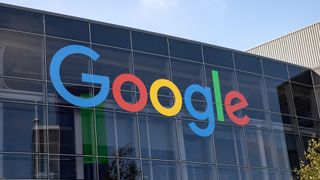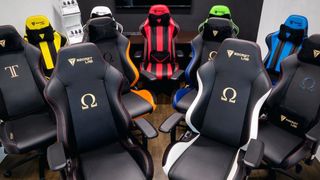'Google is a monopolist' says US judge in ruling on exclusivity deals to get Google Search on all your platforms all the time
"Google’s distribution agreements are exclusive and have anticompetitive effects."

A US judge has ruled that Google violated antitrust laws when it used exclusivity agreements to maintain a monopoly with its search engine.
In the court ruling, District Judge Amit Mehta said: "Google has violated Section 2 of the Sherman Act by maintaining its monopoly in two product markets in the United States—general search services and general text advertising—through its exclusive distribution agreements."
Those "exclusive distribution agreements" are deals such as those Google struck to be selected as the default search engine for various platforms, including through Apple's Safari browser, Firefox, Android phones, and some US carriers.
"The default is extremely valuable real estate," Mehta's ruling states.
One of the plaintiff's experts, Dr Whinston, found that "50% of all queries in the United States are run through the default search access points covered by the challenged distribution agreements." Google did not dispute this claim.
In a lengthy 286-page ruling, judge Mehta lays out that not only does Google have a monopoly, it looked to engage in practices to exclude or maintain its monopoly, i.e. through exclusivity deals and uncompetitive ad pricing. It also holds Google was unable to offer justifications for said exclusivity deals.
"After having carefully considered and weighed the witness testimony and evidence, the court reaches the following conclusion: Google is a monopolist, and it has acted as one to maintain its monopoly. It has violated Section 2 of the Sherman Act.
The biggest gaming news, reviews and hardware deals
Keep up to date with the most important stories and the best deals, as picked by the PC Gamer team.
"Google's distribution agreements are exclusive and have anticompetitive effects," it continues. It also states it uses that monopoly to charge "supracompetitive prices for general search text ads", i.e. those above sustainable market prices. It says Google was able to "increase text ad prices without any meaningful competitive constraint."
It's not all bad for Google. The court also found that the company did not have a monopoly power in search advertising. It also said of the search engine giant that it is "widely recognized as the best GSE available in the United States."
A silver lining, of sorts? That was, after all, the pitch of Google's defence. It argued that it was the better product to other search engines.
One quote cited in the ruling is from Apple’s Senior Vice President of Services, Eddy Cue, who reportedly said: "[T]here’s no price that Microsoft could ever offer [Apple]" to switch to Bing.

Google also managed to avoid a slap on the wrist for its decision to destroy many internal chat messages.
"Any company that puts the onus on its employees to identify and preserve relevant evidence does so at its own peril. Google avoided sanctions in this case. It may not be so lucky in the next one," Mehta says.

Best chair for gaming: the top gaming chairs around
Best gaming desk: the ultimate PC podiums
Best PC controller: sit back, relax, and get your game on
That won't do much to stop Google from fighting the ruling. Google's president of global affairs, Kent Walker, said in a statement (via The Guardian): "This decision recognizes that Google offers the best search engine, but concludes that we shouldn’t be allowed to make it easily available."
The US attorney general Merrick Garland called the ruling "a historic win for the American people". The White House also applauded the decision.
We don't know what the repercussions may look like for Google. The ruling does not state any sort of fine or action. However, Google's business cannot continue as is without sanction in light of the ruling, and that could be a big deal for the business of the internet. That's a topic I've been keen to discuss in relation to AI, which only has a light showing in this case, though is being used extensively by Google and others and could drive further inequalities in how search functions.

Jacob earned his first byline writing for his own tech blog. From there, he graduated to professionally breaking things as hardware writer at PCGamesN, and would go on to run the team as hardware editor. He joined PC Gamer's top staff as senior hardware editor before becoming managing editor of the hardware team, and you'll now find him reporting on the latest developments in the technology and gaming industries and testing the newest PC components.
Most Popular







